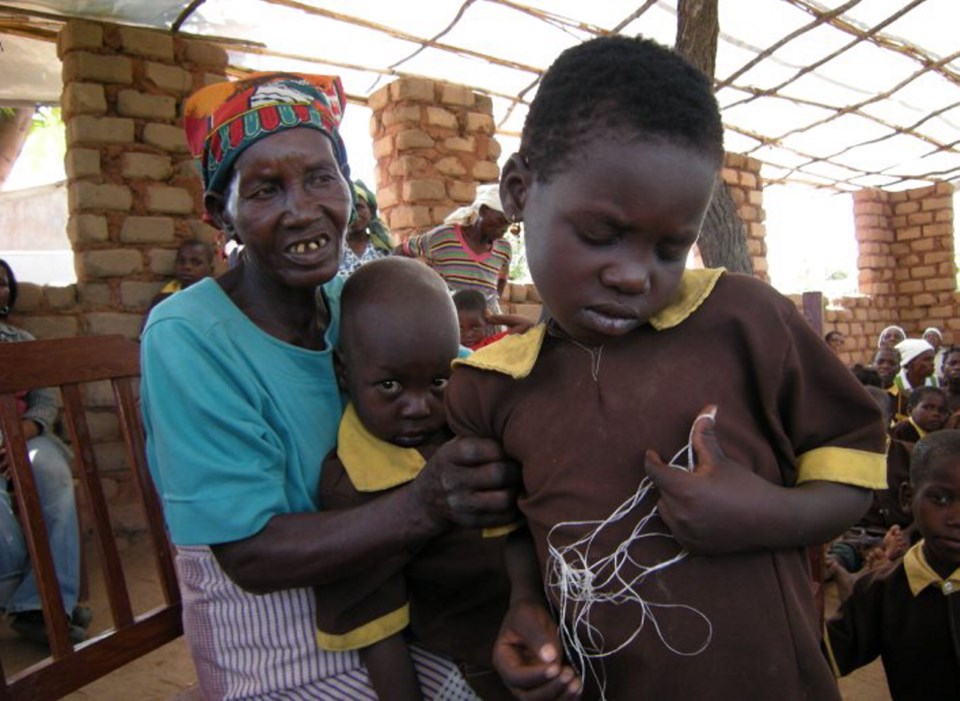When Canadian music industry mogul Gary Slaight announced his foundation was giving a $7-million donation to seven non-profit organizations, he didn’t just hand over a cheque. He presented a vision.
Slaight wants non-profits to come out of their silos and change the world through co-operation.
Through the Slaight Family Foundation, seven Canadian organizations will each get $1 million. The non-profit recipients are the Stephen Lewis Foundation, War Child, Partners in Health, Human Rights Watch, Right to Play, World Vision, and our own Free The Children.
Individually, each organization will use the money to do incredible things. In Haiti, a sick child who might otherwise have died for want of a doctor will live, thanks to Partners in Health. A grandmother in South Africa will have support from the Stephen Lewis Foundation to raise her grandchild, orphaned by AIDS. A Kenyan farmer will get drought-resistant seeds from Free The Children to see him through the dry years. And so on.
But Slaight is not content with the word “individually.” When he called to inform us about the impending donation, he also had an unusual request. He wanted all seven organizations to come meet with him around a table.
“Why?” we asked. Slaight said: “It just makes good sense to bring like-minded groups together to share their initiatives and perhaps identify some areas where they can create partnerships together. After all, we’re all here for the same reason.”
Since the earthquake, we have worked with Partners in Health in Haiti. They handle health interventions in the communities where we work, because they are so effective. And in the communities they serve, we backstop their health initiatives with education, clean water, agriculture and income development.
Yet this was the first time all seven organizations had ever met and shared ideas. We work in many of the same countries and share a dream of a better world. There is no reason co-operation, as in Haiti, couldn’t happen more.
The recent $7-million gift is not the first time Slaight has used donations to bring organizations together.
In 2013, his foundation gave $50 million to five Toronto-area hospitals to fund research and new, improved equipment. But a key part of that initiative, Slaight said, is the expectation that the hospitals will share that equipment with each other and collaborate on research.
Slaight’s initiative reminded us of another major philanthropist, Katie Couric. After the loss of her first husband to colon cancer, the internationally renowned American journalist and bestselling author established the National Colorectal Cancer Research Alliance. Couric told us one of the key criteria for a researcher who wants funding through the Alliance is that they cannot work in a silo. They must work with other researchers to increase the chances of achieving a breakthrough.
“Collaboration can really make a difference in coming up with better ideas,” Couric said.
The philosophy of co-operation, and focusing on impact over individual organizational advancement, is one we strive to impart to the next generation through the youth who attend our We Day events. To earn their “ticket,” youth must be actively engaged in one local and one global cause — any cause, not just ours. If one of our We Day participants has helped another organization have a positive impact through fundraising or volunteer work, we’re thrilled.
There are more than 86,000 registered charities and foundations in Canada today. All too often, there is a tendency within different non-profit sectors — be it community service groups or huge international development agencies — to see each other as competitors for donor dollars.
But what if we replaced competition with co-operation? Since the 2004 tsunami, humanitarian agencies have worked more closely in responding to major disasters such as the Haiti earthquake. Why can’t that spirit of collaboration extend to all world-changing endeavours?
Slaight has shown that donors — be they private or government — can be a powerful force for promoting co-operation.
Imagine the impact if all the world’s do-gooders worked together.
Brothers Craig and Marc Kielburger founded a platform for social change that includes the international charity, Free The Children, the social enterprise, Me to We, and the youth empowerment movement, We Day.



